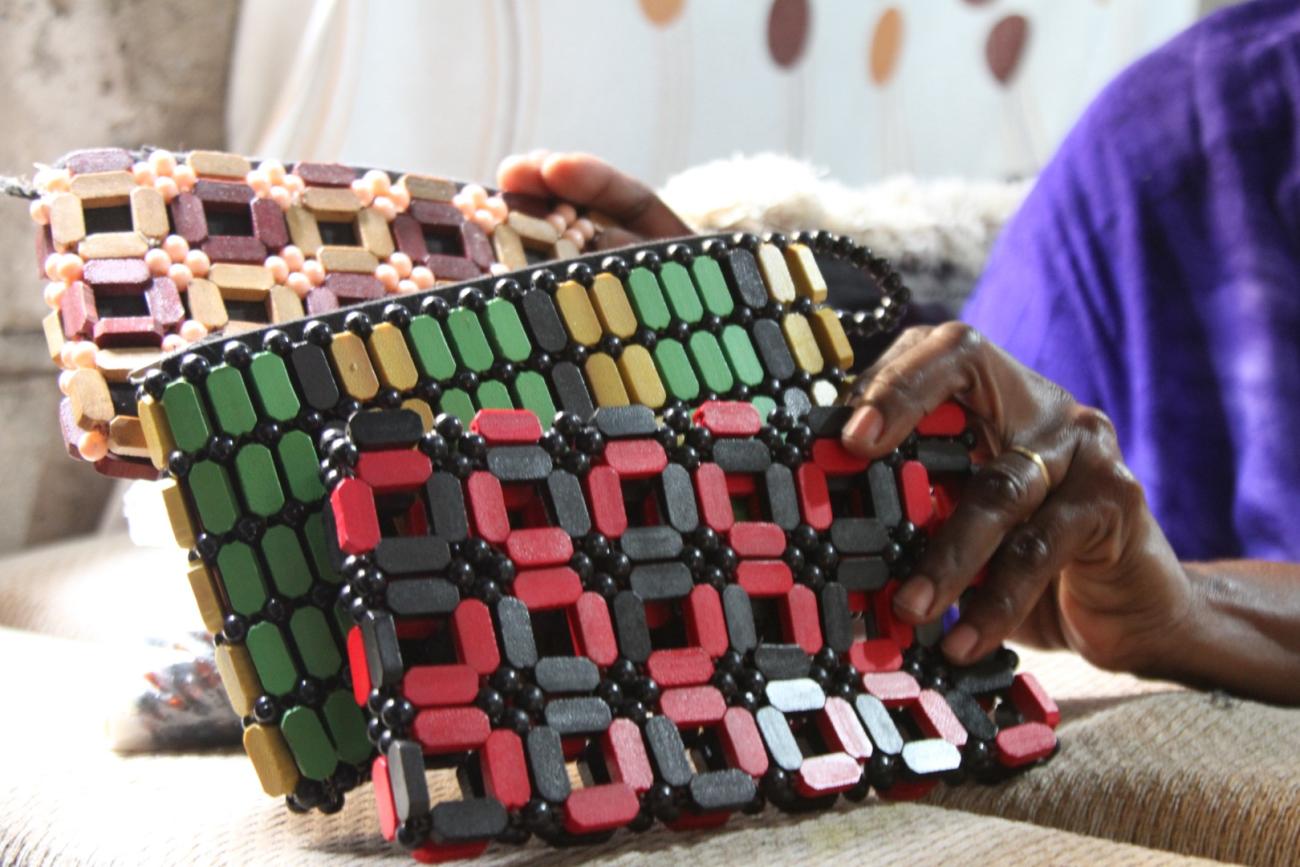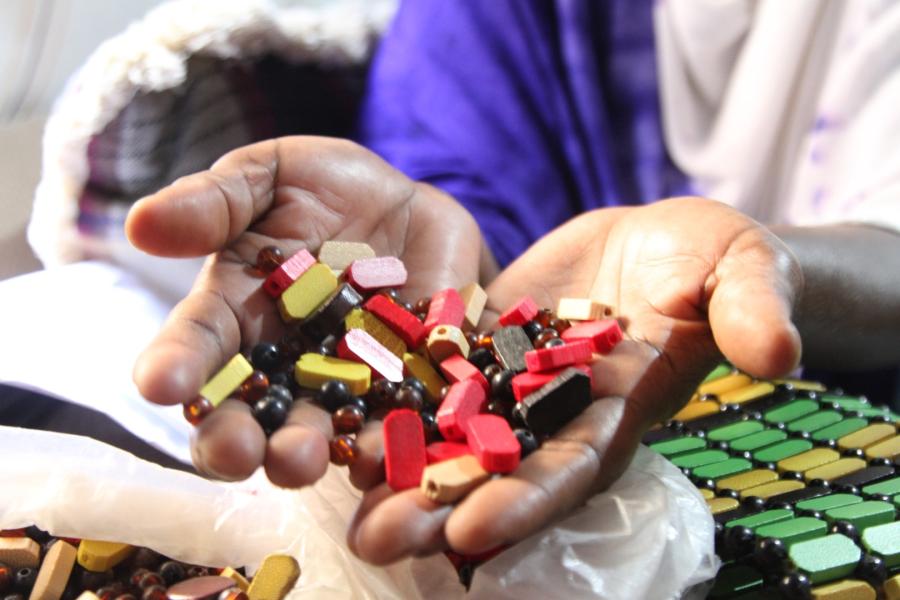Mukhti: The beaded handbag entrepreneur

“Raising a family of eight children alone is difficult. Uncertainty and fear crowd your thoughts,”
“Nobody makes the decision to leave their home lightly. But if they stay, they face death by bombs, bullets machetes,” says George Kuchio, UNHCR Deputy Representative in Tanzania. “So instead, they flee and take with them, only what their hands can carry, with the hope that the path they are taking leads to safety.”
Over the past 50 years, refugees from across Africa, the Middle East, and beyond have sought safety in Tanzania. The country is now home to some 283,000 refugees, mostly Congolese and Burundian. The vast majority of refugees live in camps, but about one out of every seven live in cities, amidst the local population. Mukhti (not her real name), age 41, is one of them.
Mukhti fled unrest in her native Somalia in 1993 and found a haven initially in Zanzibar. Following her divorce in 2009, she struggled to feed her eight children, so she moved to Dar es Salaam in search of better opportunities.
“Raising a family of eight children alone is difficult. Uncertainty and fear crowd your thoughts,” she says. Throughout the years, she has received cash grants and food support from UNHCR, the UN refugee agency.
Most urban refugee women like Mukhti use their skills in weaving, sewing, soap making, and décor to produce handmade products and earn extra money to support their families.
“I had to teach myself to make handbags and decorate them with beads,” says Mukhti. From a modest four-roomed house sitting at the far end of a narrow gravel alley in the outskirts of Dar es Salaam, Mukhti set about learning all that she could about handbags.

Soon after, and with just US$ 13 mostly from contributions from her neighbours, she started a small handbag business. “I am grateful to them. They knew I needed support, so they gave me the money and showed me a marketplace where I could buy reasonably priced beads.”
Mukhti sells the handbags by going door to door. Depending on the design and type of beads used, each bag fetches anywhere between US$ 2 – 6. She uses the profits to cover basic family needs.
“The handbag business keeps me busy. It doesn’t pay much but gives the ability to buy more food and clothes for my family, especially during Eid,” Mukhti says. She further recalls how multiple sets of new clothes and plenty of food were a tradition of the festive season when she was growing up. “But now things are different, we can not buy that many clothes, and we eat what we can afford.”
While refugees have consistently proven to be remarkably resilient in the face of crises, the potential consequences of coronavirus have caused them great anxiety. The fear of infection and loss of livelihoods have weighed heavily in the minds of Mukhti and other urban refugees.
“UNHCR has been working with partner organizations to provide health care and psychosocial support. It has also distributed disinfectant, soap, water containers, masks, and sanitizer to all urban refugee households,” says George Kuchio. “It has set up a dedicated hotline where refugees and asylum seekers can call to receive counseling,” he added.
Through her 27 year journey in Tanzania, Mukhti has faced many challenges but also experienced remarkable kindness. “There have been many sad days, but friends and neighbours have often stepped in to ease my suffering.” She does not take the help for granted, so she is giving back. “Every weekend, I train my neighbours how to make handbags, so they too can make some extra money.”
Although Mukhti has been a refugee for almost two-thirds of her life, she is defiant in her hope for a better tomorrow. “Being a refugee changes your life completely, but that doesn’t mean that life stops,” she says. “It must go on!”



